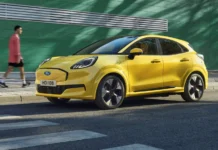By Jelani Aliyu, MFR
The Director-General of National Automotive Design and Development Council (NADDC)
On Electric vehicles, Nigeria is in a tough situation, because the world has already decided and is going green: all major automotive companies are going electric, we have to get it right and go electric or be forced to revert to the alternative of using domesticated animals for transportation, pretty much horses and donkeys because the production of fossil fuel-powered vehicles and related components is being phased out globally. No one nation can stop this, nor operate as an island, so it is in the best interest of Nigeria that all relevant stakeholders have all hands on deck.
With a petrol engine, up to 75% of energy could be wasted as directly generated heat in the cylinders, in fighting friction and in pumping air into the engine, in such a situation only about 25% of energy is used for motion and other useful energy utilization: that is why those types of engines get very hot. In contrast, an electric engine/motor is incredibly efficient as it translates over 95% of energy input into motion/useful energy utilization.

There are also additional facts and advantages:
1) Nigeria is one of the 196 countries that are signatories to the 2016 Paris Accord which mitigates greenhouse gas emissions.
2) EVs will allow us to meet those targets and provide cleaner air/cleaner environment for our people.
3) Because of our culture of putting off maintenance, EVs are better for us as they have far less parts/components, meaning they require less maintenance and hence less can go wrong.
4) The limited number of components needed by EVs will allow Nigerian companies to more easily achieve higher percentages of local content.
5) Hopefully, the Nigerian passion for cars would inspire us to develop innovative solutions in power generation for the EVs and hence positively spill over to all other aspects of power needs in our lives.
6) We are blessed with intelligent and innovative youth in the ICT sector, EVs with their embedded computerized systems will now provide a huge opportunity for those youth to be employed and productive.
7) Vehicle Electrification provides an opportunity for entrepreneurs and the private sector to profitably set up charging stations and infrastructure.
COMPARISON
Let’s do a typical fuel/energy cost comparison between an Electric Vehicle such as the Hyundai Kona and a petrol-powered vehicle with similar projected 482km range:
1) Petrol Vehicle.
The cost of filling the fuel tank for 482 km:
– @ 8 km/ ltr fuel efficiency, and @ N125 / ltr, the cost will he N7,500.
– @ 8 km/ ltr fuel efficiency, and @ N145/ ltr, the cost will be N8,700.
So N7,500 and N8,700
2) For the Kona Electric Vehicle with the same 482km range, using a 64KW battery with power consumption in KW for full charging of 143WH/km (68.926kwh for 482km):
In R1 Residence with electricity cost of N23 plus VAT per kWh, a full charge will cost N1,705
In R2 Residence with electricity cost of N26 plus VAT per kWh, a full charge will cost N1,926
In Commercial Location with electricity cost of N36 plus VAT per kWh, a full charge will cost N2,667
So N1,705/N1,926/N2,667 for the Electric Vehicles as against the N7,500/N8,700 for the petrol-powered vehicle.
Showing Electric Vehicles are cheaper to run per kilometre than petrol-powered vehicles.
This example and the other facts listed above show the strong viability of EVs and the urgent need for Nigeria to adopt Vehicle Electrification.
NADDC is committed to promoting Vehicle Electrification and to giving strong support to stakeholders that have already demonstrated efforts towards the adoption and deployment of the technology: stakeholders such as Hyundai Nigeria, Jet Motor Company and the government of Ebonyi State. We hope to work with more committed stakeholders in creating a Nigerian Electric Vehicle Ecosystem.
Yes, it won’t be easy, but just like the jump we all made together when we virtually ditched landlines and adopted cellular telephony, I believe we are ready to do a similar highly advantageous and imperative jump with Electric Vehicles.
And as regards our crude oil, the world is hurriedly transitioning from using it as fuel to using it for advanced materials such as lightweight composites with super properties, which are essential for efficiency and performance in Electric Vehicles, to build their structures, body panels, batteries and components.
Sign in
Welcome! Log into your account
Forgot your password? Get help
PRIVACY POLICY PAGE
Password recovery
Recover your password
A password will be e-mailed to you.











